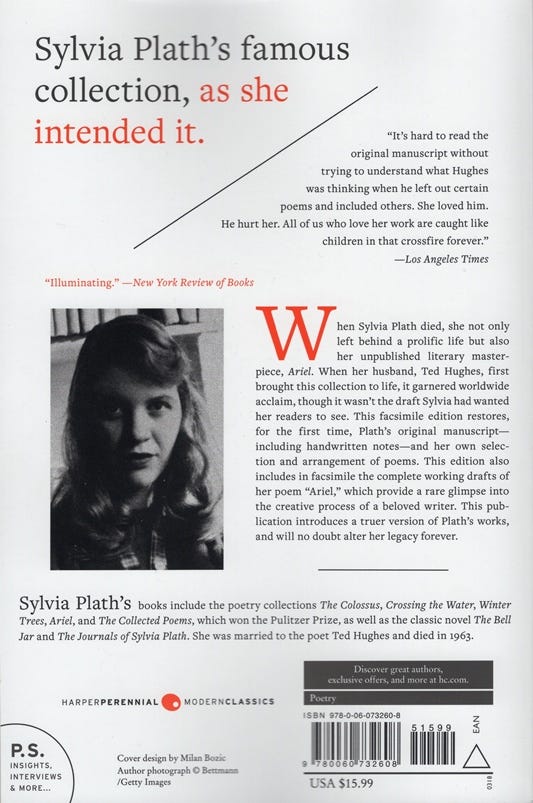THE THRESHOLD, an ode to grazing
Is there such a thing as too much book publicity?
I have trouble in bookstores these days. The aloof of discovery is gone for me mostly. There are a few overcrowded (re: crates as shelves) used bookstores that I still frequent, my favorite has those outdoor shelves where books cost cents which I plink through a silver slot on the door and go about my day. I don’t even have to go in, I don’t have to speak to anyone. The books I put in my bag are worn with palm lines at their binding and have soft almost gray paper. There’s a 98.99% assurance I haven’t seen them in a magazine lately.
I’ve always been a little bit this way about books, I think all bookish people are. The yearning to feel like we discovered a writer before they were a Writer. Some proof that our values (and maybe literary merit) spin away from general interest and closer to the caged thing we keep to ourselves, in our gut. So many women, for example, have memories of the first time they read Sylvia Plath—how she still speaks to us, how we became a part of her cult, only to realize it’s all of us quoting “Lady Lazarus,” all of us with lipstick handwriting on our mirrors. (Tumblr era).
Literature students so often have an obsession with obscurity (it’s part of the reason, I think, that romance raises their hairs—so commercial—and yet, is it really, has it always been?). Isn’t the biggest threat to an MFA student, “…but have you read ______?”
I remember the experience of hearing someone got into an MFA program at the Kenyon Writers Workshop a few summers back and looking at the program’s expected reading list, trying to decipher (while I was already in a program) whether I would have made the cut based on their expectations. Take for example, this reading list at San José State University. Me, the girl who had never gotten into Jane Austen, who did her best to piecemeal papers on the classics through library research rather than actual reading, who never took an AP class in high school. (I feel a need to tell you even here that I do love Jane Eyre though).
I’ve come to be more of a “I like what I like” kind of gal, but that doesn’t stop me from having to battle in my brain against pretending to know someone’s writing in casual conversation, or pretending I’ve read some book a group of smart people are discussing. The last time I felt this way was with W.G. Sebald’s The Rings of Saturn. I still haven’t read it, I probably won’t, but the shame of not knowing lives its nine lives, and I’ll remember the title forever (a thing I believe now to be a skill—don’t know! it’s better to now know! how fun, the surprise and delight and new figuring, the mistakes and discovery!).
I thought for a while this was a me-problem. A getting-an-MFA-becoming-a-literary-agent-moving-to-publicity in five years problem. Too many voices inserting themselves into what makes a “good book.”
But I’m coming to realize that maybe it’s a threshold problem. That for people like me, more publicity actually doesn’t make me want to read a book. Take, for example, Splinters by Leslie Jamison. I have my own feelings on Leslie Jamison’s career which I won’t bore you with, but because of the rapidity of social media, it has felt to me like that book has been coming out for nine-hundred years, when in reality it just came out Tuesday.
Over coffee with my friend Tory last week (and the best cherry-cheese danish I’ve ever had, thank you Guglhupf), I said maybe I’ll read Sheila Heti’s Alphabetical Diaries in a few years when no one is talking about it. I did love Loré Yessuff’s review in Brooklyn Rail though, and thought while reading the review that Alphabetical Diaries must be such a perfect fit for our cultural moment—where we sign into social media each morning never knowing what emotion, or emotional spectrum that the interwebs will hand over. There’s Tiktok (which I have given up for Lent) with a video of a dying horse getting led to an open field next to two girls dancing to Texas Hold ‘Em next to a video of quick flashing photos and a motherhood poem, you can be laughing and then crying within seconds. Or Twitter where a friend is celebrating a new publication and scroll, Taylor Swift is taking her parents to the club on a relatability tour, and scroll, genocide.
To read a diary, organized and curated, worked through and alphabetized, with the full emotional spectrum of one human’s ten years on this planet, it must read similarly—rapid, desperate, dissonant. We live in a culture of constant witnessing and bystanding, constant reacting to quick information with quick thoughts—a culture that rewards those things. Of course we want to read your diary.
But when is the chatter too much? I’m not talking about the privilege of looking away (which I definitely have and is another brain battle), but the overwhelm. I miss not knowing what everyone is talking about. Do I revel in the literary gossip like the writer with the new divorce book subtweeting the writer with the loud divorce essay? Yes.
(I just realized looking at this image that the seven year itch holds true here).
But I miss … discovery. I miss sliding my fingers along the shelf of a bookstore and saying, “I’ve never seen this, have you read this?” to whoever I'm with. I miss not knowing who the author is (most everyone is on social media these days and even if I love their writing, I’ve also seen their children blowing out birthday candles and know their second-borns nicknames from the caption). I miss hermit-writers (and I’ve helped in their demise).
Last year, I requested an early galley of what became a wildly popular book (by a writer I adore so I will not be saying what book), and I couldn’t even read it. The fact that it was everywhere made it impossible for me to enjoy. I wish I could say my hesitancy isn’t that EVERYONE loved it, but that must be part of it. It felt almost like I had already read it. I had read enough about it that the enchantedness and possibility of getting lost in it was lost for me.
And I guess I’m not talking about going to Target for laundry detergent and coming out with a new Elissa Sussman book. I just liked the cover of Funny You Should Ask, and it was never in my orbit before. She’s typically not the genre I read so I hadn’t been inundated with her work—a point in favor of reading outside what we think we like. (I loved it, read it in a day, and then gave it to my mother-in-law who loved it too).
So, perhaps, part of the problem is that it’s impossible to graze around a bookstore when you don’t live close to an independent bookshop, used bookshop, or book retailer like Barnes & Noble. We do, sort of, but time isn’t on our side usually. There’s no algorithm for grazing. The more that online life (and therefore online shopping) proliferates book sales, the more we lose access to this beloved past time. The more important “talk of” books becomes to say, foraging for the semi-unknown.
A predicament: you can’t “discover” a book that you never see. So, where does this leave mid-list authors, and any author dependent on their own online presence and marketing acumen + the hope that those bookstore grazers and booksellers will hand-sell and pass around their book? Those authors that can’t afford to shell out thousands for a chance that their book is picked up by mainstream media or librarians or course adopted. That’s the question, that’s who splashy book publicity is failing.
(And don’t get me started on the Single White Female (replica and identity) phenomenon of book covers—we do not need this much repetition, which again, makes books feel familiar that are potentially not at all. A trick of the brain I could do without).
The power of publicity lives somewhere between uncovering and recognition, so slim it’s hard to see. Even at the library where arguably the collection is not simply new and flashy but an odd brown bag of possibilities, I need a good hour to pick a book, which is impossible with a toddler who plans to steal shopping baskets, climb up and down the stairs several times, and run back and forth through the automatic doors—the magic. I want more of that magic in my perusing, in my reading life. Automatic doors, what a surprise!
It all feels too familiar. And honestly, it’s my job to make it feel that way.
As always, the Pine State calendar of events lives here, and you can buy our books here! You can also see what we’re working on and contact us through our website, Pinestatepublicity.com.
ICYMI: Cynthia Marie Hoffman is “writing away the angel” in Literary Hub and talking “plotters for pantsers” in Writer’s Digest, Cheryl Klein talks with Susan Ito about “satisfying childhoods and pervasive longing” for Mutha Magazine, Emily Stoddard’s Divination With a Human Heart Attached got Florence Welch out of a reading slump, Olivia Muenz talks about the line between self and the rest of the world in Michigan Quarterly Review, “big-hearted novel” Heading North by Holly M. Wendt is reviewed in Necessary Fiction, Brian Allen Carr talks gummies and crawl spaces on Textual Healing, get a first taste of Sean Enfield’s Holy American Burnout on Debutiful, and so much more on our Twitter & Instagram.
*Cover image is credited to Nathalie Stimpfl on Unsplash.









I was lucky enough to go to the library without kids, which gave me the time to peruse the new books and see the latest one from FSG Originals—Termush by Sven Holm. Hadn’t heard of it at all, but I love that press and will read whatever they publish. Discovery!
Also if you want to go into Jamison’s career I promise I won’t be bored
Oh my goodness, I relate to this so hard! It took me 12 years to get around to reading ABSURDISTAN even though I bought it hardcover at the Brooklyn Book Festival. I think I'm allergic to reading things currently buzzed about. I love The Understudy, Heirloom Books, and Exile in Bookville, three bookstores in Chicago that are wildly different from one another. But I can't luxuriate in browsing if I have my three-year-old in tow!